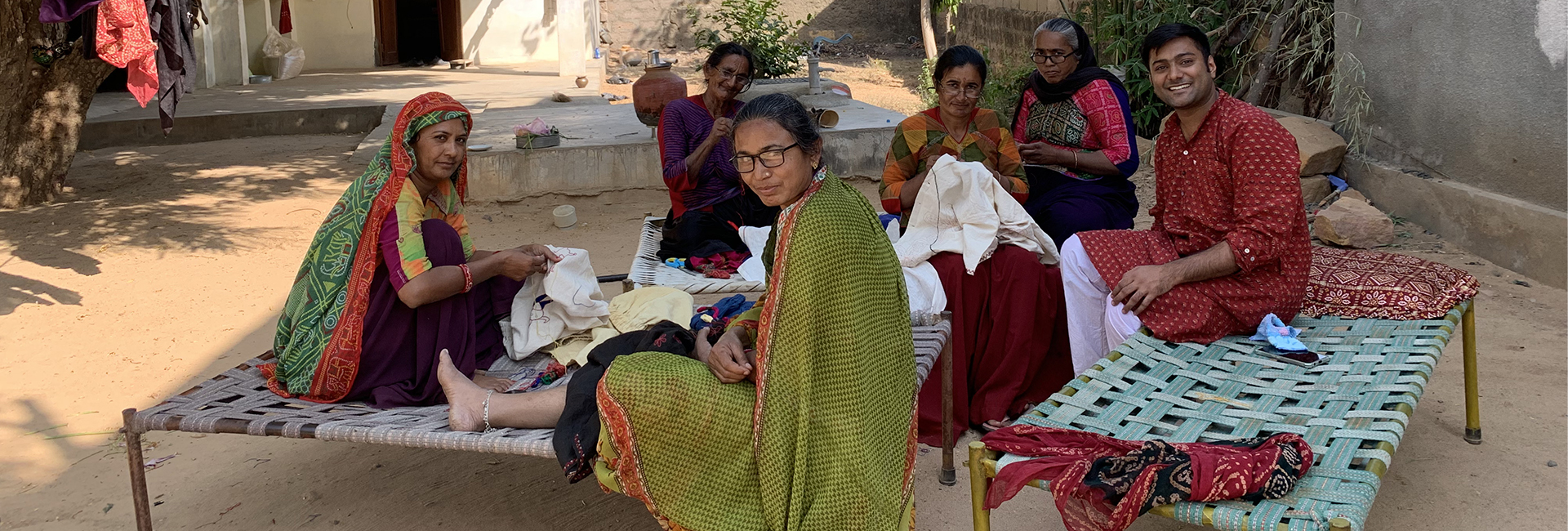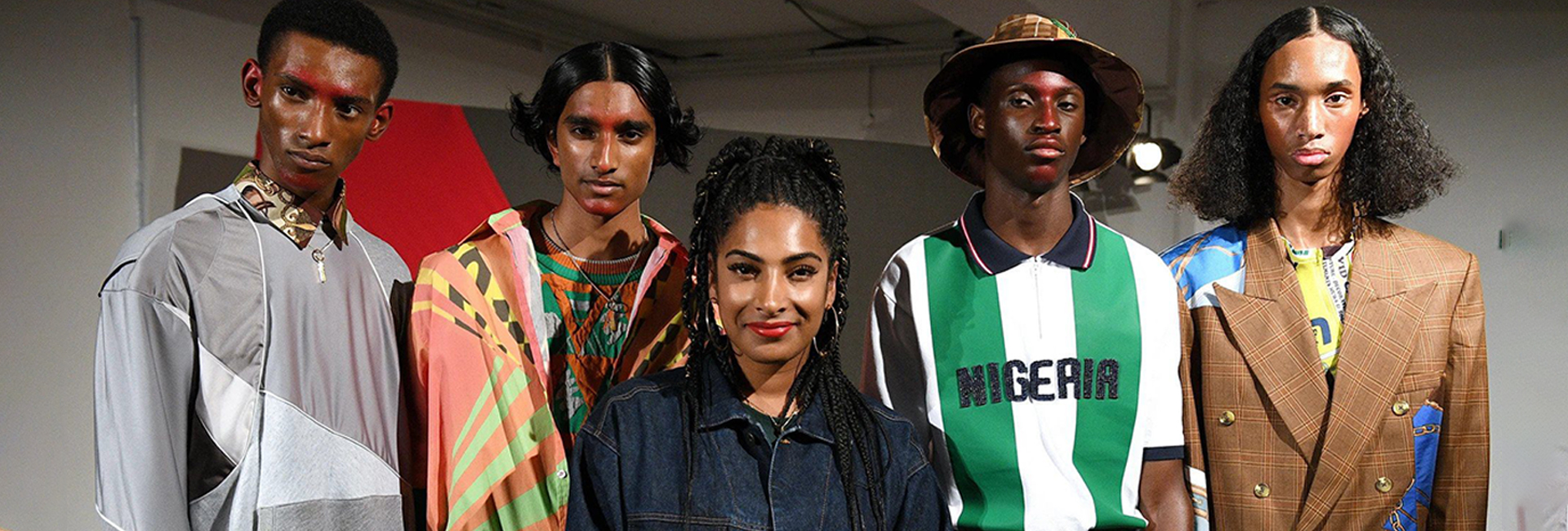(May 12, 2023) When pop icon Harry Styles landed in Florida for a concert wearing Harago’s hand-embroidered carrot farm shorts in 2021, 13,417 km away in Jaipur, Harsh Agarwal, the founder of Harago, woke up to an incremental increase in his follower count on Instagram. Suddenly, the Jaipur-based craftsmanship-focussed brand had arrived at the global fashion circle, and that too with elan. With less than two years into the business, Harago started making heads turn for all the right reasons as Harsh made it his mission to revive the richness of traditional Indian textiles by giving them a modern twist. “With Harago, I wanted to promote craftsmanship and at the same time, make it more contemporary for a global audience,” Harsh tells Global Indian.

Harry Styles in Harago
In the age of fast fashion, his brand stands out as a beacon of sustainability and craftsmanship, drawing inspiration from his grandmother’s heirloom and the diverse cultural heritage of India. His love for Indian textiles and his dedication to ethical fashion has given rise to a unique and ever-evolving menswear line, which made him feature on the Forbes 30 Under 30 2023 list.
When serendipity met love for textiles
Growing up in Bhilwada in Rajasthan, Harsh was surrounded by the vibrant colours, intricate patterns, and skilled craftsmanship of Indian textiles, thanks to his parents. While his dad owned a textile business, he credits his mom for his interest in and appreciation for textiles. “I got it from her. Ever since I was young, I had a passion for textiles, so much so that I would get my clothes tailored, according to my style and design.” Though designing clothes came naturally to him, he never considered it to be a full-time career, and that’s why he pursued economics and business at the Symbiosis School of Liberal Arts in Pune and later spent a semester at Western University. But it was an internship at the UN headquarters in New York working with the Economic and Social Council and Refugee Commission that turned out to be a game-changer for Harsh, who learnt about sustainable fashion from some people who were working on it. In it, he found an opportunity and soon packed bags to return to India to begin something of his own.

Harsh Agarwal, the founder of Harago
But not without some research. He didn’t want his brand to be just sustainable but was keen to celebrate Indian craftsmen and Indian textiles through it. This put him on the road for the next six months where he travelled the length and breadth of the country to discover various crafts techniques. “For me, it was about connecting with the artisans and understanding them. I didn’t just want a working relationship with them, instead wanted to know them personally and understand their craft. This took me from West Bengal to Gujarat to Maheshwar in search of the craft which helped me later to make samples and designs,” says the designer who started sourcing textiles from the artisans.
Harago – the beginning
This led to the birth of Harago (a play on his name), a menswear brand that works with vintage textiles, and traditional embroidery techniques like kantha, cross stitch and applique to create beautiful silhouettes. For someone, who has always been appreciative of textiles, following a textile approach for Harago didn’t come as a surprise. “While making a new collection, we don’t start from sketches. Instead, we travel to artisans’ homes and sift through the textiles that they are making. We try to work with what’s already there. And that’s our starting point of design for our new collection,” adds Harsh, who found the inspiration in his grandmother’s heirloom.
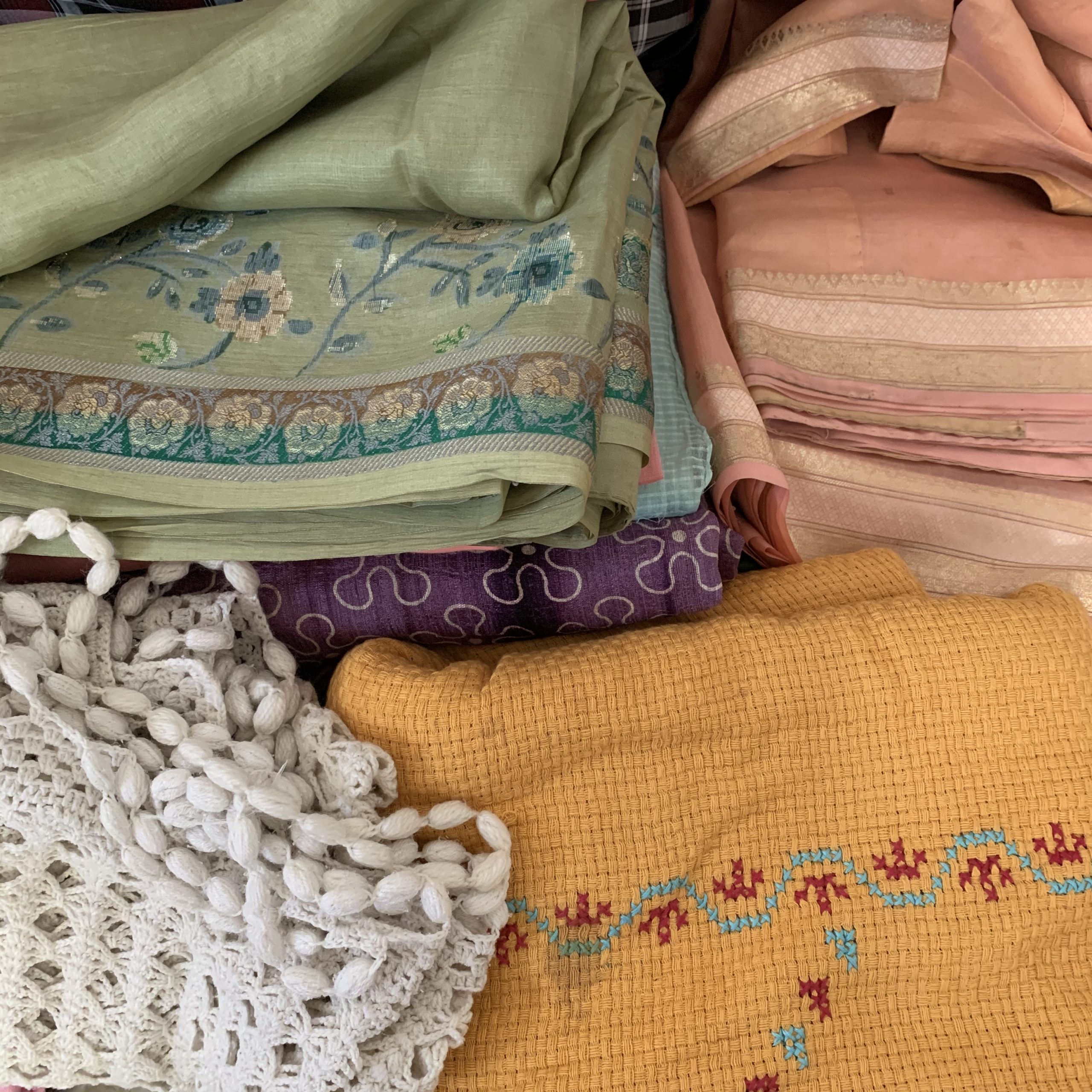
A treasured collection of hand-embroidered curtains and old bedsheets sparked his passion for preserving and celebrating Indian textile heritage. “My mother and grandmother loved preserving old textiles. I always knew it existed but when I revisited it during the lockdown, I saw it from a different eye. This inspired me to come up with a one-off vintage textile collection by repurposing them.”
The brand was introduced to the world on Instagram, as Harsh doesn’t believe in the mass-production model and releases new products in drops – a limited-release of collection. Not keen to follow the traditional cycle of fashion, he wanted to establish the brand value by following the concept of drops. “It helps us in planning and there is no wastage. Plus, it helps us release something new quickly in the market.” However, he is quick to add that “fashion cannot be 100 percent sustainable.” That’s the reason he doesn’t promote Harago as a sustainable brand, but instead as a craftsmanship-focussed brand.
View this post on Instagram
Marrying traditional with modern
His love for Indian textiles is evident in the carefully curated collections he releases. The brand’s signature pieces include relaxed kurtas, lightweight jackets, and tailored trousers, all made from exquisite hand-woven fabrics. His designs are influenced by his travels across India, as he constantly seeks out new textiles and techniques to incorporate into his creations.
Launched in 2019, Harago has quickly gained recognition for its innovative fusion of traditional Indian fabrics and contemporary menswear silhouettes. The brand’s use of natural dyes, hand embroidery, handloom fabrics, and sustainable practices sets it apart from other fashion labels. This is what exactly attracted global customers to Harago in no time. “Initially, we got more attention abroad than in India, and it became our client and base,” he avers as Harago has collaborated with New York-based bespoke shirt brand Tony Shirtmaker and New Jersey-based concept store, & Son, and sells extensively in Italy, France, Singapore, Australia and the US. More so, international celebrities like pop icon Harry Styles, Irish singer songwriter Niall Horan, musician George Crosby and the fashion director of H by Halston, Cameron Silver swear by Harsh’s designs.
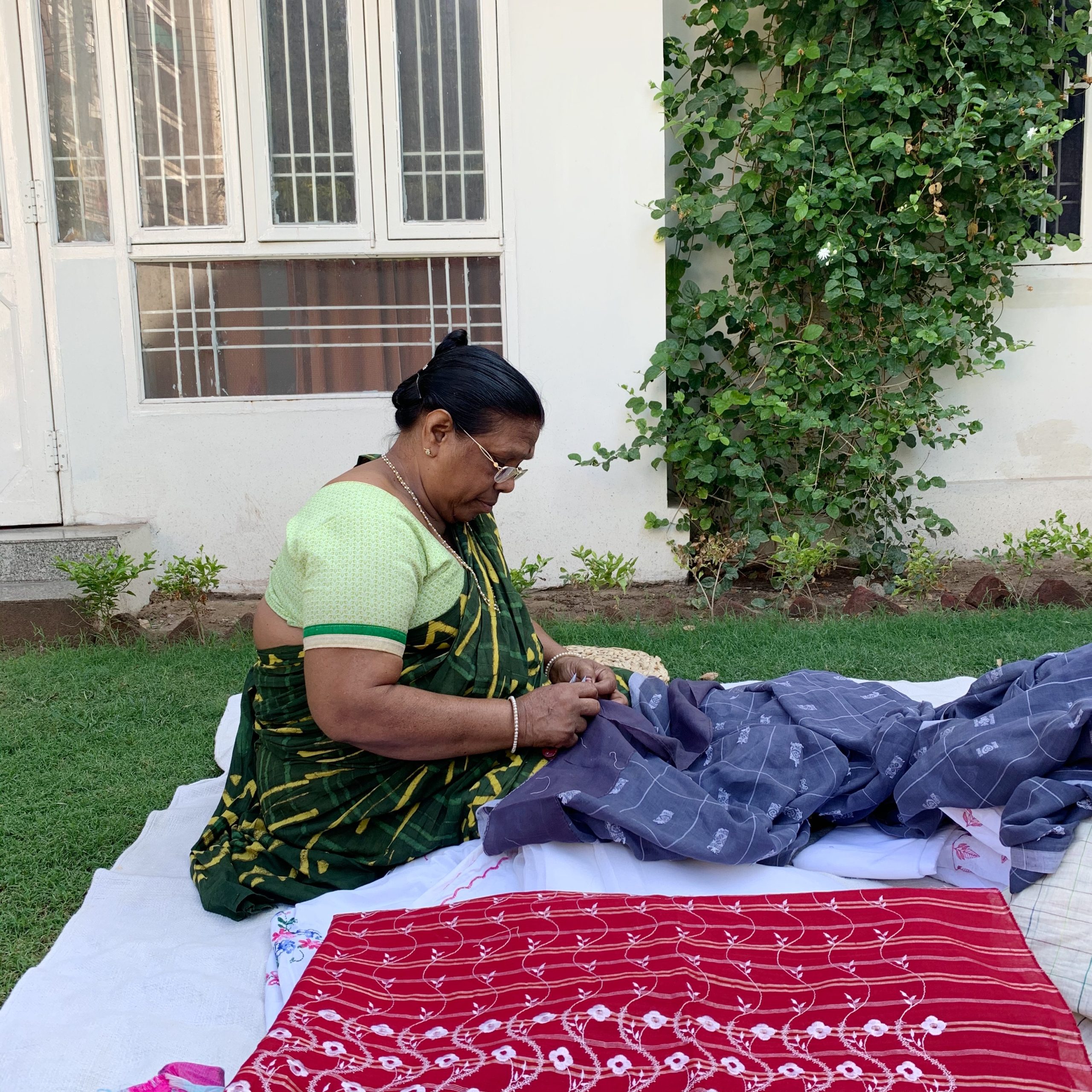
Without any formal training, Harsh still managed to put Harago on the global map, and learning on the ground and getting his own hands dirty have been his biggest learnings in the process. “Being an outsider in the fashion industry, I brought in a different perspective,” he says, adding, “When you come from a fashion school, you come with a preconceived concept of how things work. But that didn’t exist for me, and that’s what helped the brand grow so quickly. For me, everything came from gut and intuition.”
But being a self-taught designer and an entrepreneur was equally challenging for Harsh as the degrees of challenges in the day-to-day operations always kept him on his toes. “It’s not easy building a brand, but I was able to overcome this because of the unconditional support from my family.” He started with just one tailor and a sewing machine in his home, and now the team has expanded to 20 people. “Things have moved drastically for us in the last three years, also because we had no competition. But now we do see people entering the space and doing something similar to us.” Ask him how he keeps competition at bay, and pat comes the reply, “Just focus on what you are building.”
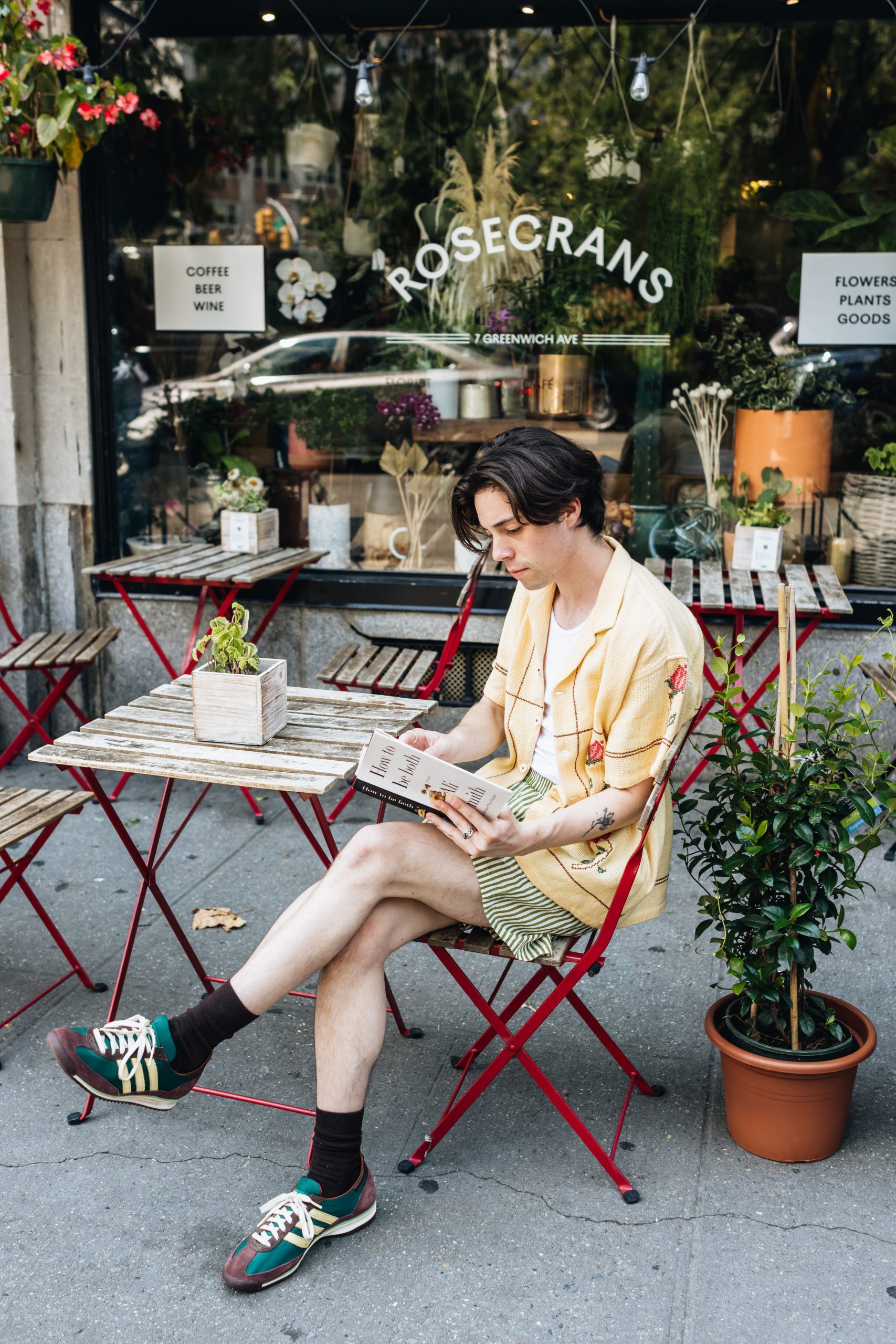
The artisans are his hero/heroines
This keeps him motivated and the “curiosity keeps the fire alive” in him enough to work on new artisan discoveries during travels and find the right people that help diversify. “We have now moved to the women’s work collection and looking at artistic crafts-based bags. I am pushing the boundaries and want to expand and catch attention.”
One of Harago’s core values is its commitment to sustainability. Harsh collaborates with local artisans and craftspeople to source hand-woven fabrics, ensuring fair wages and supporting traditional craftsmanship. The designer is happy that he has been able to bring artisans together and promote their craft, bring work to them, and continue to be valued for what their craft has been. Elaborating on the impact that Harago has had on the lives of the artisans, Harsh shares that many of the artisans from Kutch were earlier either running their grocery shops or turned to farming or labourers. “They later switched to working on the craft as this has started paying them more and brings a value back to their craft.”
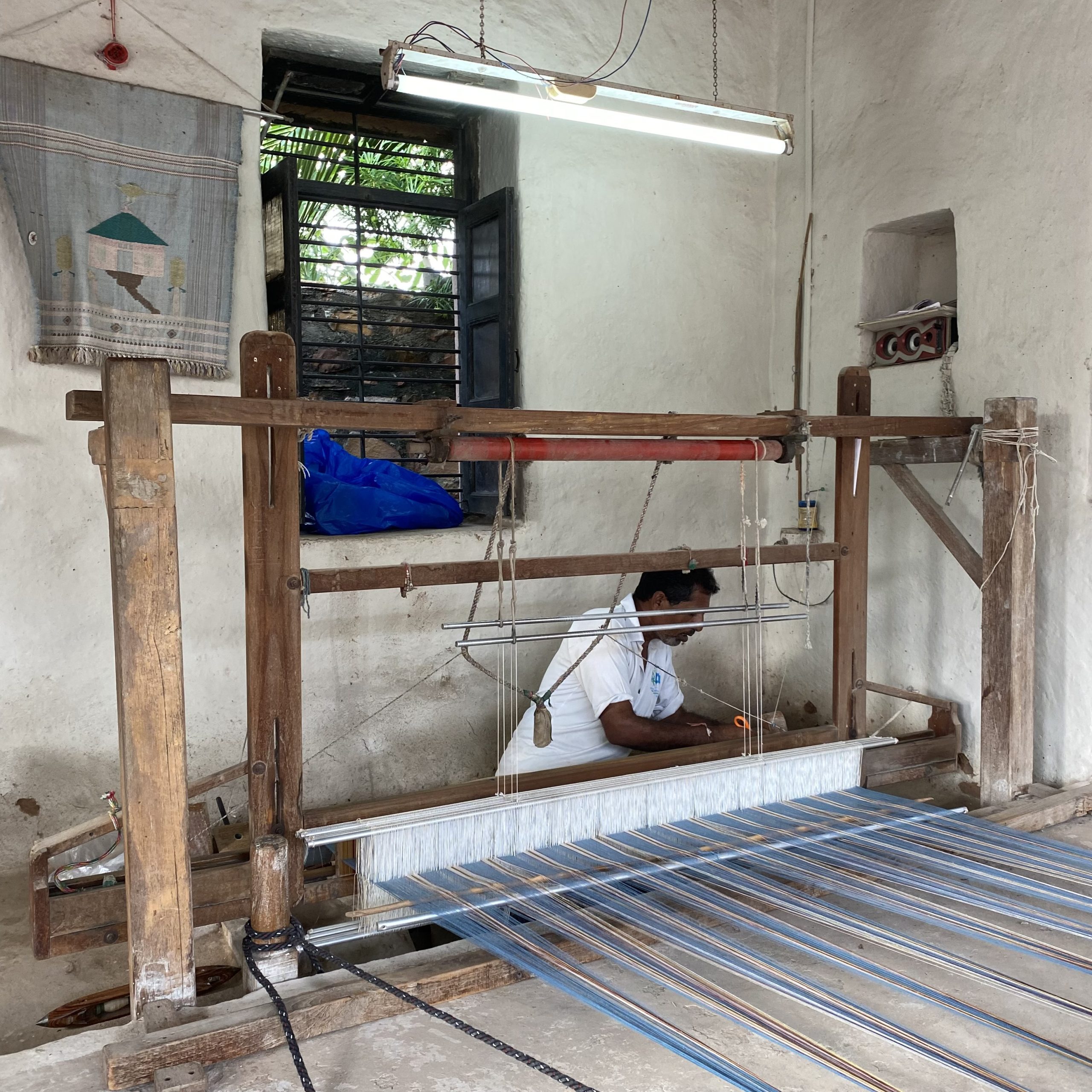
Harsh, who loves to spend time with his family and go on vacations to unwind, has carved a niche for himself in the world of fashion by marrying the past with the present. In just three years, Harago has attained success, and Harsh plans to expand the business by working on more stocks. The Jaipur-based brand, which has no store as of now, wants to open Harago store shortly. “I want to present our Universe to the world,” he signs off.

